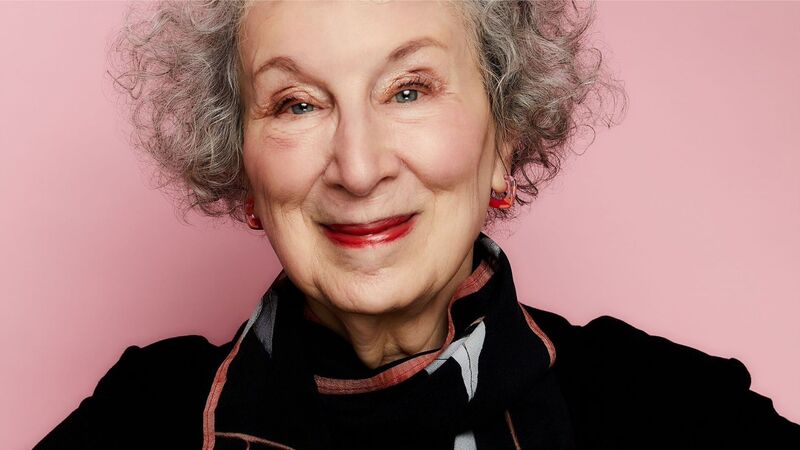You are viewing your 1 free article this month. Login to read more articles.
Amateur sleuths and post-pandemic insights predicted as book trends for 2021
Editors and agents say books about the natural world and “oblique” looks at the pandemic are strong trends for the year ahead while readers also remain on the lookout for escapist fiction and Thursday Murder Club-style amateur sleuths.
With many readers spending the best part of a year mainly at home, industry insiders said there was a yearning for optimistic novels, with Richard Osman's soaraway hit debut a key touchstone for some.
Katherine Armstrong, currently of Bonnier Books UK and soon to be head of fiction at S&S, observed: “What I did notice last year was that there are more books being submitted that fall into the traditional mystery mixed with the thriller element - that 'Agatha Christie meets X' angle. I think we’ll see more of that coming, especially with the fantastic success of Richard Osman. There could be an uptick in amateur sleuths. I also think we might see more locked-room mysteries but with contemporary settings and darker plots.
“However, I also believe that we’ll still see a good market for police procedurals with a twist or more high-concept - looking at Bonnier’s own The Art of Death by David Fennell coming on 4th February and Nadine Matheson’s The Jigsaw Man coming 18th February from HQ - as well as thrillers that blend a bit of the supernatural.”
Ailah Ahmed, publishing director for Little, Brown, Abacus and Virago, agreed on the first point, saying: “I’d like my submissions to mirror what I have gravitated to in terms of television and Netflix - nostalgia, comfort, secure ground and something uplifting and optimistic. Maybe the success of Richard Osman’s cosy crime novel feeds into this mood too - I am sure we all need something to lift our moods in this pandemic.”
Scout Catherine Eccles, from Eccles Fisher Associates, agreed there was a renewed appetite for cosy crime. She added: “Trends we expect to continue into 2021 include more submissions from underrepresented voices — non-fiction on race and gender, uplifting novels that avoid stereotypes, and realistic stories as well as fantasy across middle-grade and YA. Then, literary Millennial novels following on from the likes of Naoise Dolan and Rebecca Watson.
"There’s been a recent uptick in cosy crime, in part due to the success of The Thursday Murder Club (Viking), offering an escapist stories with comforting resolutions. Historical fiction may be back, 'Bridgerton' will surely encourage that. Psychological thriller submissions have finally waned. Internationally, Scandinavian crime is still going strong. In non-fiction we are seeing a continuing interest in science, memoir and nature writing, though a slowdown in proposals aimed at the Sapiens market. We’ll also look forward to the break-out success that comes from nowhere and spawns a whole new genre.”
Agent Madeleine Milburn said: "Submissions that stand out for me have a strong discussion point, and genre fiction is working on multiple levels. It’s not just escapism that readers are looking for, but a psychological insight into our own experiences. We want to learn something new. I’ve been drawn to book club fiction with thought-provoking themes and characters we can relate to, those that test us but offer answers too, relationship dramas, and coming of age in today’s world. I’m definitely seeing more uplifting novels during this time of crisis too, and stories about the power of community, a network that everyone is a lot more conscious of during this pandemic."
Allen & Unwin publisher Ed Faulkner agreed readers were still after escape after months of lockdown. He said: “It was so interesting to me that fiction sales increased dramatically in the past year, as readers seem to want books that provide an escape from our current situation. In terms of non-fiction, I think we will also see a rise in entertaining books that offer a means of escape, while I also feel there will be an increasing trend for books on mental health and mental resilience, as well as community spirit and activism.”
Elsewhere in non-fiction, agent Will Francis at Janklow & Nesbit said he was noticing “a yearning for nature and a deeper understanding of and connection with the natural world, particularly one that’s grounded in science”.
Forthcoming titles in this area include Aarathi Prasad’s book Silk: A History in Three Metamorphoses (William Collins), Birdgirl by young conservationist Mya-Rose Craig (pictured) which Cape won in a 14-publisher auction last year, Nichola Raihani’s book about co-operative behaviour in animals, The Social Instinct (Cape), and Lucy Cooke’s Bitch (Transworld), about the biology of female animals.
Francis said: “I’m about to send out a book by a famous ecologist which will explain the structure of ecosystems. My bestselling science writer Ed Yong is working on a book about how animals sense the universe which we’ve sold all over the world too. Clearly Merlin Sheldrake’s book has been a big seller in this area.”
Books that dealt with the coronavirus crisis “obliquely” were also popular, he said, such as historian Jordan Goodman's study of malaria and the relationship between disease and ecosystems, and psychologist Sander van der Linden’s The Truth Vaccine, won in a six-way auction by Fourth Estate last year.
He said: “I think our appetite for the epidemiology and narrative accounts of the unfolding of the pandemic is mostly satisfied by the excellent journalism on the subject. But there’s a deeper interest in the history of disease, in understanding how information about science and medicine is communicated.”
Transworld editorial director Alex Christofi said he was also after titles that looked at what happens after the pandemic. He said: “I am craving books that show how we can put the world back on course after the pandemic: extraordinary stories of people who are making change; rebalancing our relationship with nature, or documenting the astonishing variety we stand to lose; reckoning with Britain’s past and its new place in the world; and, of course, holding business and government to account for the mess we’re in. It’s been a tough year for many reasons and I think people are looking for an olive branch.”
Marianne Tatepo, Ebury Press and Pop Press commissioning editor, said people undergoing enforced staycations were looking to travel the world through food instead, while "inspirational" stories from people of colour were also growing. She said: “In terms of emerging trends, in food and drink it feels like we’re seeing more cuisines from around the world, which is exciting and much-needed at a time when so many of us are nowhere near eating, say, local Oaxacan cuisine anytime soon or even hitting any street food stalls. Bread is also having a moment - with proposals on its history and composition as well as on basic bread making skills.
“More broadly, it seems like more inspirational narratives by people of colour coming through - I’ve read proposals that acknowledge the impact of race on individuals’ lives without taking away from all the other interests, passions, habits and unique experiences of the author. In 2021, I’d love to see more submissions on pop culture, humour, nature, spirituality, cookery and wellbeing for readers across the human spectrum. I want agents not worry too much about what ‘the average [white] reader’ may feel about not being centred in every book that exists.”
In children's books, Nosy Crow's Tom Bonnick said escapism was also the order of the day, with fantasy a growing trend and authors shying away from Covid-inspired tales.
He said: “The most noticeable thing for me is probably that there's more fantasy being submitted than ever in the middle -rade space, which is perhaps making it harder for any individual submission to really stand out — but then, we're still always looking for original and well-written fantasy, so it's not a problem for me, as such. Middle grade as an area also seems to be crowding out younger children's age groups — 90% of what I receive on submission at the moment is middle grade and I see very little younger fiction.
“There hasn't been a slew of Covid-specific fiction submissions that some of us expected or feared. I don't know that there's much appetite for that at the moment, though. I'm seeing less funny fiction at the moment — perhaps it's harder to find things to laugh about right now — and would love to see more. And I saw a noticeable increase in agented submissions from authors from diverse backgrounds in 2020, which feels to me like a cautiously encouraging step in the right direction.”

















